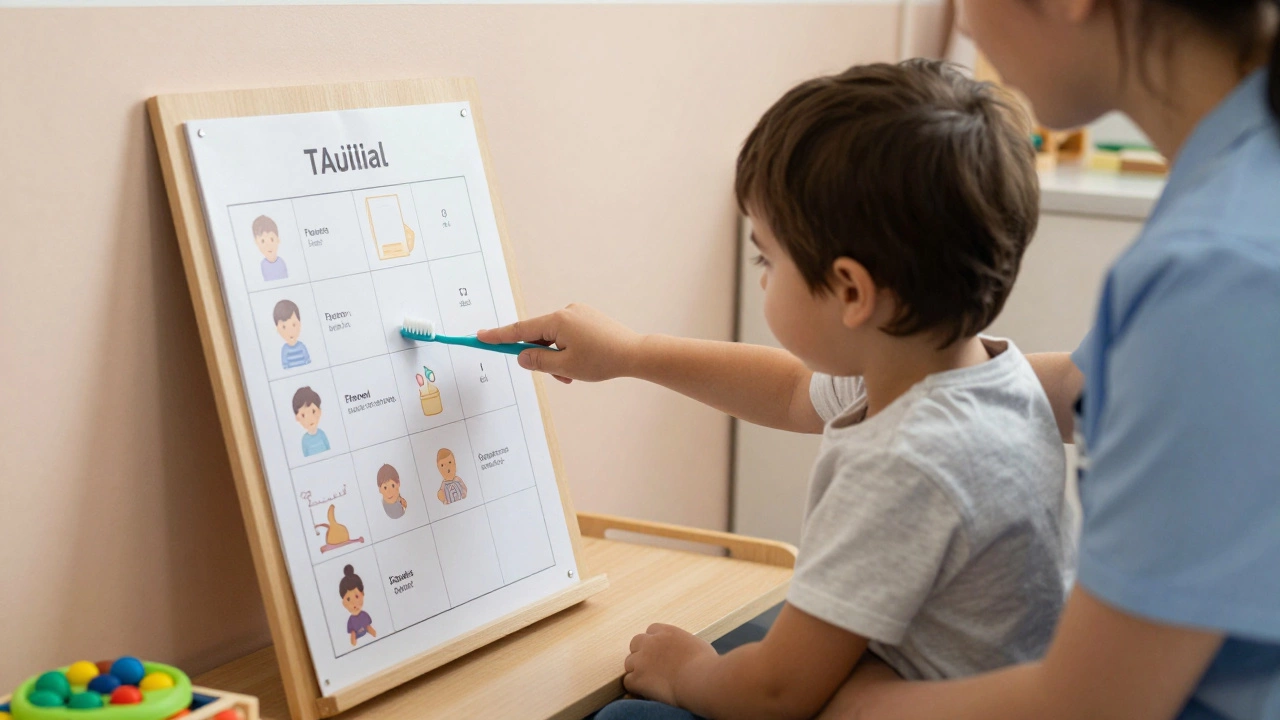Special Education: Practical Tips and Resources
If you’re looking for straight‑forward help with special education, you’re in the right place. Whether you’re a teacher, a parent, or a student, the right tools and language can make a big difference every day. Below you’ll find easy steps you can start using right now.
Using Respectful Language
The words we choose shape how people feel. Try using terms like “learner with additional needs” or “student who requires support” instead of outdated labels. Simple swaps show you respect the person, not just the challenge. When you’re not sure, ask the family what they prefer – a quick conversation can avoid misunderstandings.
Creating an Inclusive Classroom
Start with the basics: clear instructions, visual aids, and a predictable routine. Break tasks into smaller steps and give plenty of time for practice. Pair students with peers who can model the skill you’re teaching – this helps everyone stay engaged. Remember, a flexible seat or a quiet corner can turn a noisy day into a focused one.
Technology offers quick fixes, too. Apps that read aloud or turn speech into text work well for many learners. You don’t need a fancy setup; even a free tablet can provide the needed boost. Keep a short checklist of the tools you use so you can add or remove them as needed.
Assessment should feel like a chat, not a test. Use observations, short quizzes, or one‑on‑one talks to see how a student is progressing. Share what you notice with parents in plain language – no jargon, just facts and next steps. This builds trust and keeps the support plan on track.
Home‑school connection matters. Send a quick note home about what was covered and a simple activity the family can try. Ask the parent what works at home and try to match that in class. Small gestures, like a handwritten note, reinforce that you’re working together.
Don’t forget self‑care. Working with special needs can be intense, so take short breaks, share ideas with colleagues, and celebrate small wins. When you feel refreshed, you’re better able to give each learner the attention they deserve.
Finally, keep learning yourself. Follow blogs, join local workshops, or read the latest posts on our site. Topics like “Polite Terms for Special Needs” or “Parenting a Special Needs Child in Australia” give fresh ideas you can adapt here. Stay curious, stay kind, and watch your learners blossom.

What Is Considered a Severe Learning Disability?
- by Eliza Fairweather
- on 1 Feb 2026
A severe learning disability means lifelong challenges with thinking, communicating, and daily tasks. It's not just being slow - it's a deep neurological difference that requires constant support. Learn what sets it apart from mild learning issues and how people live with it.

What to Call Kids with Special Needs: Navigating Language and Inclusion
- by Eliza Fairweather
- on 22 Mar 2025
In today's world, identifying the right terminology for children with special needs is crucial for promoting respect and inclusion. This topic explores how language impacts perception and inclusion, highlighting the shift from outdated terms to more respectful alternatives. Understanding the preferred terminology is essential for those in special education, parents, and the general public. This discussion not only addresses why words matter but also offers tips for fostering a more inclusive environment.

Understanding Special Education: Signs and Steps to Take
- by Eliza Fairweather
- on 15 Mar 2025
Recognizing if a child might need special education can be hard. It's not just about academic struggles; there are often behavioral signs, too. Specialized assessments by professionals can provide clarity. Early identification and tailored support can make a big difference. Here's how to spot the signs and take action.

Effective Strategies for Parenting Children with Special Needs
- by Eliza Fairweather
- on 31 Jan 2025
Raising a child with special needs can be both rewarding and challenging, requiring unique approaches to ensure their growth and happiness. This article delves into practical strategies that support the development of children with special needs, offering insights into how parents can nurture their strengths and address their challenges. Discover essential tips for creating a supportive home environment, fostering communication, and navigating educational resources. Whether you're a seasoned parent or new to this journey, the knowledge gathered here will guide you in making a positive impact on your child's life.
